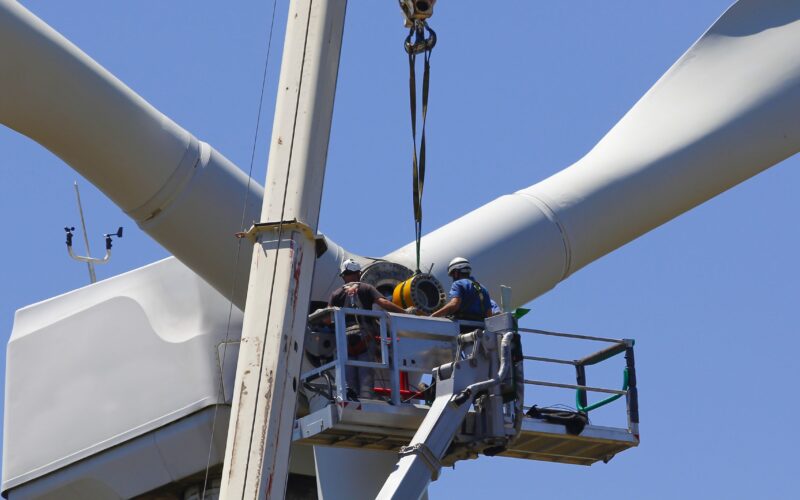Are you a business owner or entrepreneur looking to tap into the ever-growing market for clean technology? Then you’ll be interested to know that the European Union (EU) has set an ambitious target for clean tech production, with plans to become carbon neutral by 2050. What does this mean for businesses? In this blog post, we explore the significance of this announcement and what it could mean for your company. From funding opportunities to new markets and increased consumer demand, we delve into the exciting possibilities that lie ahead for businesses involved in clean technology.
Introduction: EU Sets 40% Target for Clean Tech Production
The European Union (EU) has set a target of producing 40% of its energy from renewable sources by 2030. This is a significant increase from the current level of around 27%. The target was agreed upon by the European Council, which is made up of the heads of state or government of the EU’s 28 member states.
The new target is part of the EU’s 2030 climate and energy framework, which was approved at a meeting in Brussels on October 23, 2014. The framework includes targets for reducing greenhouse gas emissions, increasing energy efficiency, and using more renewables.
The 40% renewables target is binding at the EU level. Individual member states will have to produce a specified amount of their energy from renewables in order to meet the target. Member states are also required to develop national action plans specifying how they will achieve their targets.
The ambitious targets set by the EU are in line with its commitment to fighting climate change. They are also in line with the goals set by the International Energy Agency, which has called for global renewable energy production to be doubled by 2030 in order to meet rising demand and reduce greenhouse gas emissions.
The EU’s renewable energy target will require a massive investment in clean tech research and development, as well as in infrastructure such as wind farms and solar parks. Businesses that are involved in clean tech research and development, manufacturing, and construction will have ample opportunities to grow and prosper in the coming years.
What is the Meaning of “Clean Tech”?
“Clean tech” is shorthand for clean technology. It describes a category of technologies that are designed to minimize negative environmental impacts throughout their life cycle, from manufacture and use through to disposal or recycling.
The term is often used in the context of climate change mitigation, as clean tech options are typically seen as more environmentally friendly than their traditional counterparts. But clean tech can also refer to technologies that aim to improve water and air quality, or that make more efficient use of resources like energy, land, and water.
There is no single agreed-upon definition of cleantech, but the term generally includes a wide range of technologies and practices spanning several different sectors including transportation, power generation, agriculture, buildings and construction, industry, and waste management.
What Are the Benefits of Clean Technology?
The benefits of clean technology are numerous and far-reaching. Perhaps most importantly, clean tech can help to combat climate change by reducing greenhouse gas emissions. Additionally, clean tech can help to improve air quality and water quality, while also reducing the amount of waste produced. Cleantech can also be used to increase energy efficiency and decrease dependence on fossil fuels.
How Are Businesses and Governments Responding to this Initiative?
The European Union has set an ambitious target for clean tech production, aiming for a 32% share of the global market by 2030. This is a welcome move for businesses and governments who have been calling for greater action on climate change.
There are a number of ways that businesses and governments can respond to this initiative. Firstly, they can increase their investment in clean technology research and development. This will help to ensure that Europe remains at the forefront of the clean tech industry and will create jobs and growth across the continent.
Secondly, businesses and governments can work together to create incentives for companies to adopt clean technologies. These could include tax breaks, subsidies or other financial incentives. This would make it easier for businesses to switch to cleaner technologies and would help to boost demand for these products.
Finally, businesses and governments can promote public awareness of clean technologies. This could be done through advertising, education campaigns or other means. Raising awareness of the benefits of clean technologies will help to increase their uptake in both the business and consumer sectors.
The Potential Impact on Jobs and Businesses in the European Union
The European Union has set an ambitious target for clean tech production, aiming to have at least 27% of its energy come from renewable sources by 2030. This is a huge increase from the current level of 14%, and will require a massive investment in clean tech infrastructure and jobs.
There are a number of potential impacts on jobs and businesses in the European Union as a result of this target. Firstly, there will be a need for many new jobs in the clean tech sector, from manufacturers to engineers to installers. This will provide a boost to employment across the EU. Secondly, businesses that are able to adapt and invest in clean tech will be well-positioned to take advantage of the growing market for renewable energy. Finally, the EU’s commitment to clean tech will send a strong signal to businesses and investors around the world that Europe is serious about becoming a leader in the fight against climate change.
Recommendations for Businesses Operating in the EU
The European Union has set an ambitious target for clean tech production, with a goal of becoming the world leader in renewable energy by 2030. This target is part of the EU’s climate change strategy, which includes a commitment to reduce greenhouse gas emissions by at least 40% below 1990 levels by 2030.
Businesses operating in the EU will need to take into account this new target when planning their operations and strategies. Here are some recommendations for businesses:
- Review your business operations and identify ways to increase energy efficiency and reduce emissions.
- Invest in renewable energy technologies, such as solar, wind, or hydro power.
- Advocate for policies that support the growth of clean tech industries in the EU.
- Educate employees and customers about the benefits of clean tech and how they can help contribute to meeting the EU’s climate goals.
Conclusion
The ambitious targets set by the EU for clean tech production will certainly have a meaningful impact on businesses. It not only encourages businesses to focus on clean technology but also sets a new standard in sustainable energy sources and products. Moreover, it provides financial support to help companies meet these goals and remain competitive in their respective markets. Ultimately, this commitment from the EU is sure to create a wave of green innovation that promises to shape our future.







